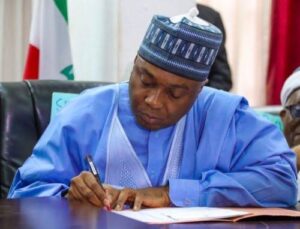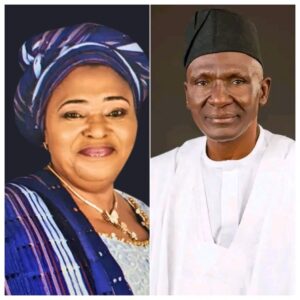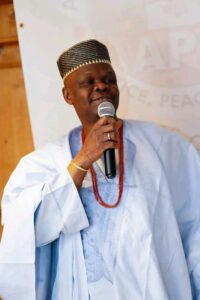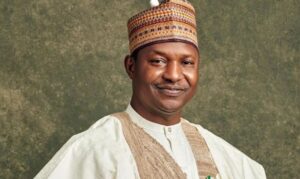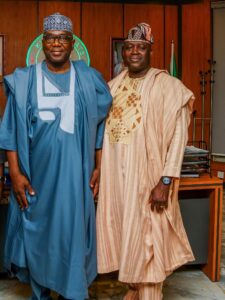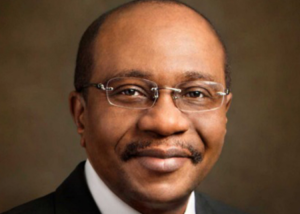By Abdulfatai Tomori
The tradition of assigning nicknames or sobriquets to soldiers has a rich historical legacy, dating back to ancient times. These monikers serve to encapsulate various aspects of a soldier’s persona, including their personality, appearance, skills, or notable achievements. This practice has been prevalent across diverse historical periods and cultures, reflecting the enduring significance of these epithets within military contexts. In ancient Greece and Rome, soldiers were commonly identified by nicknames that reflected their distinctive attributes. For instance, the renowned Greek warrior Achilles was also known as “The Fleet-Footed,” a moniker that underscored his exceptional speed and agility. Similarly, during the Middle Ages, knights often acquired sobriquets based on their coat of arms or their valour on the battlefield.
Notably, Richard the Lionheart was revered as “Coeur de Lion” (French for “Lionheart”), a testament to his renowned bravery and martial prowess. This time-honoured tradition has continued through the ages, with soldiers in the American Civil War earning nicknames like “Stonewall” Jackson and “Sherman’s Marchers” for their actions and appearances. In the tumultuous landscape of World War I and II, nicknames such as “G. I. Joe” and “The Greatest Generation” became synonymous with courage and sacrifice, while individual soldiers like Audie Murphy were immortalized with monikers like “Audie the Hero.” This also happened in our country.
For example, during the turbulent years of the Nigerian Civil War (1967-1970), which had a profound impact on the country and significantly shaped its history, many soldiers on both sides were given unique nicknames that reflected their traits, bravery, and leadership qualities.
Since then, these monikers—which were commonly bestowed upon them by their comrades, commanding officers, or observers—have grown to constitute an essential aspect of Nigerian military history. One such well-known individual at this period was General Yakubu Gowon, who served as the Head of State of the Federal Republic of Nigeria. He was affectionately known as “Jack,” a moniker that encapsulated his calm and composed demeanour, even in the most demanding situations. Other notables included Federal Forces Commander General Murtala Mohammed, affectionately known as “Monty of the Midwest,” a moniker that reflected his astute leadership and strategic thinking. Colonel Benjamin Adekunle, another Federal Forces Commander, was recognized as “The Black Scorpion,” representing his indomitable courage and resilience on the battlefield. Colonel Olusegun Obasanjo, another Federal Forces Commander, earned the moniker “The Battle-Hardened General,” signifying his steadfast dedication to the war effort and his relentless pursuit of victory. Major General Shehu Musa Yar’Adua, another Federal Forces Commander was known as “The Dashing General.”
On the opposing side, Colonel Chukwuemeka Odumegwu Ojukwu, leader of the Biafran forces, was identified by powerful aliases such as “The Rebel” and “The Biafran Lion,” reflecting his resolute determination and unwavering bravery in the face of adversity throughout the conflict. Biafran Colonel Joe Achuzia was famously nicknamed “Hannibal” during an operation to recapture Okigwe in late 1968.
He was also known as “The Air Raid,” a title that underscored his bravery and tactical expertise in aerial combat. Similarly, Lt. Colonel Chukwuemeka Nwokoro, another Biafran Forces Commander, was celebrated as “The Biafran Tiger,” reflecting his fearlessness and unwavering commitment to the Biafran cause. Similarly, Adebayo Hamed Lawal—a fighter pilot who heroically fought alongside Federal forces during this historic moment—earned the fitting moniker “The Encounter.” This moniker, according to his junior brother from Offa, Ishaq Balogun, who also retired as an AVM, was a testament to his unrivalled commitment, unwavering bravery, and intense zeal for service. However, with a few exceptions, the unsung heroes of that era and the military leaders mentioned above, including Bayo Lawal and Ishaq Balogun, all played critical roles in maintaining the unity of our country.
The collective experiences of these great men during the Nigerian Civil War not only bound them together but also elevated them as influential guardians of the country’s integrity. Amid internal strife and divisions, they remained resolute in their commitment to a unified Nigeria. Their enduring legacy lies in their monumental achievement of settling any doubt about Nigeria’s indivisibility. Post-civil war, Bayo Lawal and his fellow soldiers continued to be instrumental in shaping the destiny of Nigeria. They were a group of indomitable people who had a lasting impact on the history of the country, bound together by common experiences, ideals, and an unshakeable commitment to maintaining national unity. Through their leadership and vision, they ensured that the country remained a cohesive entity, weathering the storms of political turmoil, economic challenges, and social unrest.
Their unwavering belief in Nigeria’s indivisibility became a beacon of hope, inspiring generations to come. Their influence extended beyond the military, as they provided guidance and direction to the broader ruling class, shaping the country’s trajectory since 1966. Their vast network, both within Nigeria and globally, enabled them to present a united front against any threats to the nation’s integrity. Their most significant achievement, however, was the eradication of doubts regarding Nigeria’s divisibility. They proved that, despite the country’s diversity and challenges, unity and coherence were not only possible but also essential for progress and development. Unfortunately, several of these renowned soldiers have died, the most recent being Adebayo Hamed Lawal. In life, certain inevitable events must occur, and just like there is a time for birth, there is also a time for death. Every aspect of existence adheres to the laws of seasons.
The death of Adebayo Hamed Lawal marks the end of an era characterized by remarkable resilience and valour.
Born on September 14, 1941, in Offa, Kwara State. Bayo Lawal’s educational background and military training laid the foundation for his remarkable career. He attended Government College, Ibadan, from 1955 to 1962, where he demonstrated academic excellence and a keen sense of discipline. His passion for aviation led him to enlist in the Nigerian Air Force at the younger age of 22 years in 1963, undergoing rigorous training as a military pilot in West Germany. After graduating in 1964, the young Bayo returned to Nigeria as a professional fighter pilot, ready to serve his country with honour and glory. Bayo Lawal’s life narrative is a monument to his extraordinary bravery and unshakable commitment to service. His extraordinary journey began during Nigeria’s Civil War, which lasted from 1967 to 1970. As a young fighter pilot, he displayed remarkable courage and selflessness, culminating in a defining moment when he assumed the role of an officer amidst the tumultuous conflict, confronting formidable adversaries with resolute determination.
As a young Air Force officer, Bayo may have had the rare opportunity to fly one of Nigeria’s first eight MiG-17s, which arrived from Egypt with support from the Soviet Union in August 1967. He might have been among Nigerian flight pilots and mercenary pilots from various countries, including East Germany, the Soviet Union, South Africa, the United Kingdom, and Australia, who had the chance to operate these advanced aircraft. The significant acquisition of these high-subsonic fighter aircraft made in the Soviet Union took place in August 1967, with the aircraft delivered through Aminu International Airport. The introduction of the MiG-17, known for its exceptional flying capabilities, had a profound impact on Nigeria’s military aviation strength, representing a critical enhancement to its defence capabilities during that time. Despite numerous challenges, including attempted air strikes by the Biafran Army Force (BiAF) aimed at destroying the MiGs, AVM Lawal’s unwavering determination and commitment, as well as that of his fellow service members, may have played a critical role in ensuring the MiG-17s’ operational readiness.
The MiG-17 aircraft were used for the first time in combat on the 30th of the same month, successfully attacking the Onitsha airfields. This was a significant moment in Nigeria’s military history. The delivery of the MiG-17s played a major role in the final offensive that led to the recapture of territory under Ojukwu’s control by December 22, 1969. This achievement was a turning point in the 30-month civil war and demonstrated the lasting impact of the dedication of the Nigerian Air Force. All of these stories are not of my own creation.
They can be found in the book “African MiGs,” which details the deliveries of MiG-17s to Nigeria and their use in combat during the Biafran Civil War from 1967 to 1970. However, Lawal’s collaboration with his fellow servicemen undoubtedly played a significant role in the final surrender of the remaining Biafran forces on January 13, 1970, which marked the end of the civil war.
Throughout his distinguished military career, AVM Lawal held pivotal command positions, including his notable appointments as the Commander of the Port Harcourt Base from 1969 to 1970 and subsequently as the Commander of the Kano Base from 1972 to 1973 and again from 1975 to 1977, overseeing air-force operations in those regions. At one point, Bayo Lawal served as the Director of the Air Faculty Command and Staff College, Jaji Kaduna State. His exemplary leadership and tactical expertise as the AOC Tactical Air Command Makurdi played a pivotal role in shaping the Nigerian Air Force into a formidable force, earning him the respect and admiration of his peers and subordinates.
His consistent devotion to maintaining the highest standards within the Nigerian Air Force embodied his unrelenting commitment to excellence and discipline. Recognized for his dedication and leadership skills, he was appointed as the Commander of the Makurdi Base from 1977 to 1978. In July 1978, Lawal received a prestigious appointment as the Military Governor of old Benue State, which encompassed parts of present-day Plateau, Nasarawa and Kogi States. He carried out his duties with great responsibility and authority, playing a crucial role in facilitating a smooth transition from military to civilian rule. Under his leadership, Benue State witnessed significant development in various sectors, including infrastructure, education, and healthcare. He also prioritized the welfare of the citizens, implementing policies aimed at improving their quality of life. AVM Lawal’s achievements as Military Governor of old Benue State were a testament to his vision, dedication, and ability to inspire and motivate others.
His legacy continued to shape the state’s development long after his tenure, serving as a model for future leaders. AVM Lawal’s impactful tenure culminated in a significant milestone in Nigerian history when he handed over power to Chief Aper Aku of NPN, marking a testament to his steadfast commitment to democracy and civilian rule. His leadership during this transitional phase laid the groundwork for a peaceful and democratic transition from military to civilian government. No wonder, in his condolence message, the Benue State Governor, Hyacinth Alia, described the former military governor of Benue State, AVM Adebayo Lawal (rtd), as having played a significant role in overseeing the peaceful transition from military rule to democratic governance in the state. This underscored his enduring dedication to the welfare and stability of the nation.
AVM Lawal’s distinguished career continued with his appointment as a member of the Supreme Military Council (SMC), later renamed the Armed Forces Ruling Council (AFRC) after the then General Ibrahim Badamosi Babangida became the Military President. His leadership and strategic expertise contributed significantly to the nation’s decision-making process. His further appointment as Federal Minister of Youth and Sports from 1986 to 1989 during the same military regime was a testament to his versatility and ability to serve in various capacities. His tenure in this role brought pride to many of us, especially those who were young at the time. Being from Offa, he became a source of pride for us, the children of parents who were also from Offa but living elsewhere during that period.
Whenever his name was mentioned at the then Ogun Radio/OGBC for whatever reason, you could see a sign of pride in our moods. Even our parents were not left out. His ministerial activities were not our primary concern; simply mentioning his name filled us with pride. Another individual from Offa who garnered our admiration during that period was Group Captain Salaudeen Bola Olatinwo, the Military Administrator of Kwara State under the regime of General Buhari and Idiagbon.
These remarkable individuals, along with others like them, served as our role models during that time.
Throughout his illustrious career, AVM Lawal maintained an unwavering dedication to the ideals of military service and national security, upholding the values of secrecy and discretion inherent in military and security matters. As a military man, Bayo Lawal understood the necessity of secrecy in military and security matters.
In a press conference in July 1985, when a Nigerian Air Force Jaguar plane crash was reported, Lawal criticized the publication of such incidents without clearance from the Ministry of Defence or the concerned service area. Lawal believed that publicly disclosing such information without proper clearance was unpatriotic and potentially harmful to national security. By citing examples from the USA, UK, and USSR, where military accidents were not sensationalized in the media, AVM Lawal emphasized the need for responsible reporting and respect for operational secrecy.
His stance on this issue demonstrated his dedication to upholding the highest standards of military protocol and national security. During this period, one trait he consistently showed was his strong sense of self-reliance. He was truly a self-made man; from his education, which he pursued with great zeal, to his career as a soldier, and then a pilot. He was a very independent-minded man, who took great pride in his work. He was a man who was committed to every undertaking, leaving no stone unturned and accomplishing everything that was set before him. His numerous accomplishments, coupled with his courage and leadership, make him an enduring inspiration for Nigerians and the armed forces. He was a man of great strength and purpose, both in mind and spirit. Undoubtedly, he was destined for greatness and possessed a beautiful heart.
Despite his many achievements, Lawal remained a humble and private individual.
He did not engage in the murky world of Nigerian politics or economic competition. His resolute stance and dignified silence in the face of political and economic entanglements reflected his unwavering commitment to the noble virtues of service and integrity. AVM Bayo Lawal (rtd), during his life, held a deep affection for Offa, his hometown, and was dedicated to advancing its prosperity, as well as that of Kwara and Nigeria as a whole. The Offa Descendants’ Union (ODU), the umbrella organization for Offa indigenes, echoed these sentiments, paying tribute to him as a dedicated, hardworking, loyal, and selfless individual devoted to the betterment of Offa. This acknowledgement was conveyed by the union’s National Public Relations Officer, Comrade Taofeek Olalekan Olaosebikan, who underscored Lawal’s steadfast commitment to advancing Offa’s progress, a commitment that endured even through his retirement years.
Likewise, Governor AbdulRahman AbdulRazaq of Kwara State, through a statement issued by his Chief Press Secretary, Rafiu Ajakaye, conveyed that Lawal’s passing marked the end of an era in Nigeria’s military history, particularly within the Nigerian Air Force, where he achieved significant milestones. The governor emphasized Lawal’s enduring legacy within the Air Force and his pivotal contributions as a community leader and statesman. Barrister Wahab Shittu SAN, a prominent son of Offa, regarded AVM Bayo Lawal as a silent achiever, administrator, and patriot, considering him one of Offa’s heroes. Shittu highlighted Lawal’s remarkable leadership as the Minister of Sports and praised his exemplary conduct and esteemed position in military circles.
In his tributes, AVM Ishaq Balogun (Rtd.) commended Bayo Lawal for his bravery both during and after the Nigerian Civil War.
He recalled how Lawal’s courage and chivalry earned him the nickname “The Encounter.” Balogun also acknowledged Lawal’s remarkable MiG flying abilities and his unwavering bravery in the face of danger. He also remembered one of Lawal’s memorable quotes, “what-a-hell,” which exemplified his enthusiasm and determination. AVM Bayo Lawal died quietly in his sleep on June 23, 2024, at the age of 83, according to his daughter, Mrs. Yinka Enahoro. During this difficult time, I extend my heartfelt prayers for strength and comfort to his friends, associates and family. AVM Bayo Lawal’s remarkable contributions will forever be cherished by his friends, colleagues, associates, children, grandchildren, and the entire Ofe-Aran’s Compound, as well as the people of Offa, Kwara State, and Nigeria. My deepest prayer is for the Almighty Allah to grant the late retired AVM Hamed Adebayo Lawal a place in Aljannah Firdausi, where he can find eternal peace and happiness. Farewell to a hero and extraordinary patriot.
Abdulfatai, an independent researcher, writer, and amateur historian, can be contacted at [email protected].

